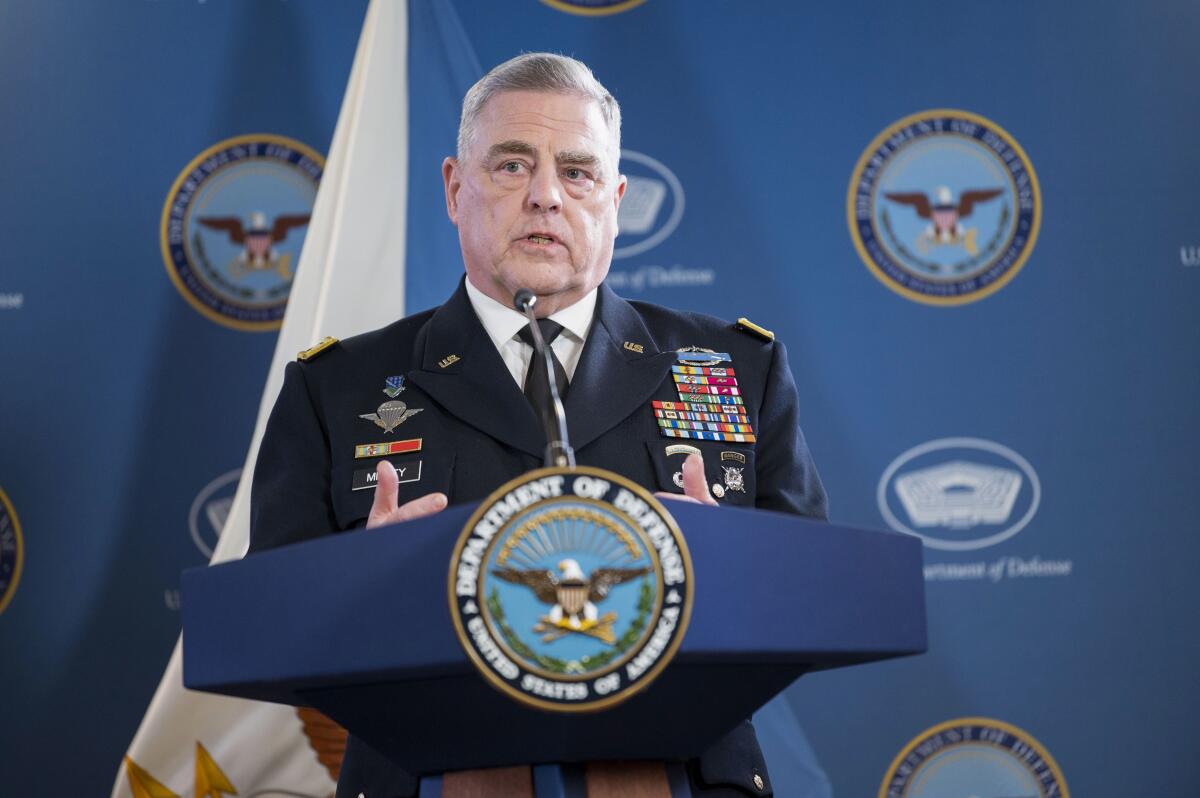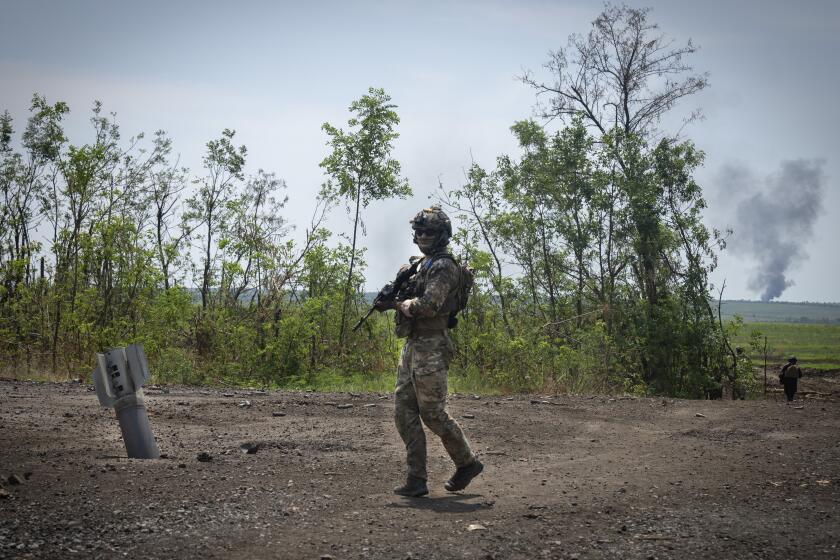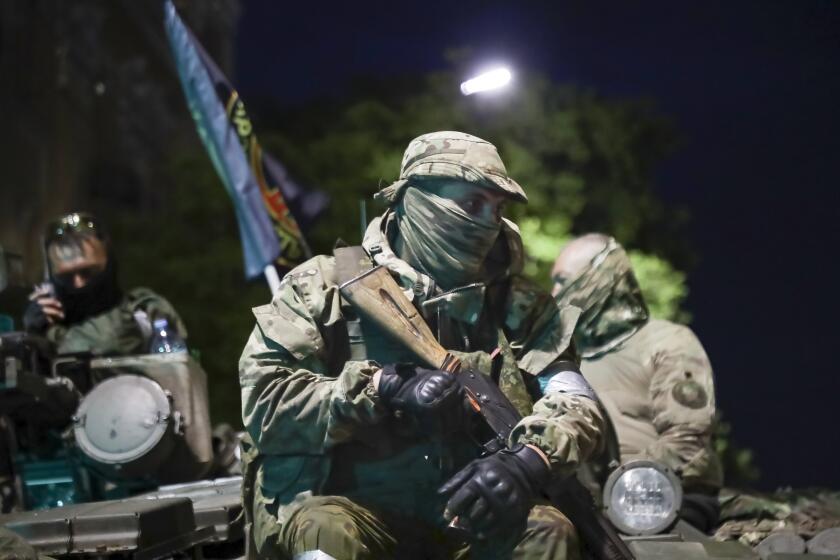The U.S. is considering providing cluster munitions to Ukraine

- Share via
WASHINGTON — The United States is considering providing cluster munitions to Ukraine, the top American military officer said Friday.
Army Gen. Mark Milley, chairman of the U.S. Joint Chiefs of Staff, said the U.S. has been thinking about providing the munitions “for a long time.” He noted that Russian troops are using them on the battlefield in Ukraine and that Ukrainian forces have received cluster bombs from other allies and have deployed the arms.
Milley said at the National Press Club that discussions are continuing. “The Ukrainians have asked for it, other European countries have provided some of that, the Russians are using it,” Milley said. “There’s a decision-making process ongoing.”
He also dismissed suggestions that Ukraine’s counteroffensive was going too slowly. Milley said he thought the initial campaign would take six weeks to 10 weeks. “It’s going to be very difficult. It’s going to be very long,” Milley said. “No one should have any illusions about any of that.”
Cluster bombs are weapons that open in the air, releasing submunitions, or “bomblets,” that are dispersed over a large area and are intended to wreak destruction on multiple targets at once. The bombs can be delivered by planes, artillery and missiles, according to the International Committee of the Red Cross. The “bomblets’’ have a high rate of failure to explode, up to 40% in some recent conflicts, according to the ICRC.
Ukrainian forces are attempting to wear down the Russian army and reshape battle lines to create more favorable conditions for a counteroffensive.
Proponents of banning cluster bombs say they kill indiscriminately and, because many fail to explode initially, endanger civilians long after their use. Groups have raised alarms about Russia’s use of the munitions in Ukraine.
It is not clear how America’s NATO allies would view the U.S. providing cluster bombs to Ukraine and whether the issue might prove divisive for their largely united support of Kyiv. More than two-thirds of the 30 countries in the alliance are signatories of a 2010 convention on cluster munitions banning their use, production or stockpiling.
The United States, Russia and Ukraine are not signatories to the cluster bomb ban.
Last week, Laura Cooper, a deputy assistant secretary of Defense focusing on Russia and Ukraine, testified to Congress that the Pentagon has assessed that such munitions would help Kyiv press through Russia’s dug-in positions.
The deliberations on whether to provide Ukraine cluster munitions come as some U.S. officials are concerned about the slow pace of that long-anticipated counteroffensive.
With the shocking mutiny by Russia’s Wagner mercenaries put down for now, Moscow and Kyiv both work to calculate where their war goes from here.
While most Western officials will not publicly say Ukraine’s counteroffensive is moving too slowly, there is growing sentiment that Ukraine needs to seize on the weather, conditions on the ground and any impact that last weekend’s revolt by Wagner Group forces may have on Russian military cohesion to bolster their advance.
The Russian military will now have to absorb Wagner forces into its ranks and make command changes if Russian President Vladimir Putin pursues officials who may have been sympathetic to the mercenary group’s founder, Yevgeny Prigozhin. Even before Prigozhin’s revolt, the Russian military was grappling with logistics and morale challenges.
While the U.S. has emphasized that the timing and place of Ukraine’s efforts are solely its decision to make, there are concerns that Ukraine has not moved faster. For months the U.S. and Western allies have trained and equipped Ukrainian forces for the anticipated fight, yet many of those forces are not yet engaged in combat.
Ukraine’s advance has been slowed by dense minefields and other obstacles defending Russian lines, according to a U.S. official, but the Biden administration has provided equipment to help overcome that.
Baldor reported from Parris Island, S.C. Associated Press writer Ellen Knickmeyer contributed to this report.
More to Read
Sign up for Essential California
The most important California stories and recommendations in your inbox every morning.
You may occasionally receive promotional content from the Los Angeles Times.











